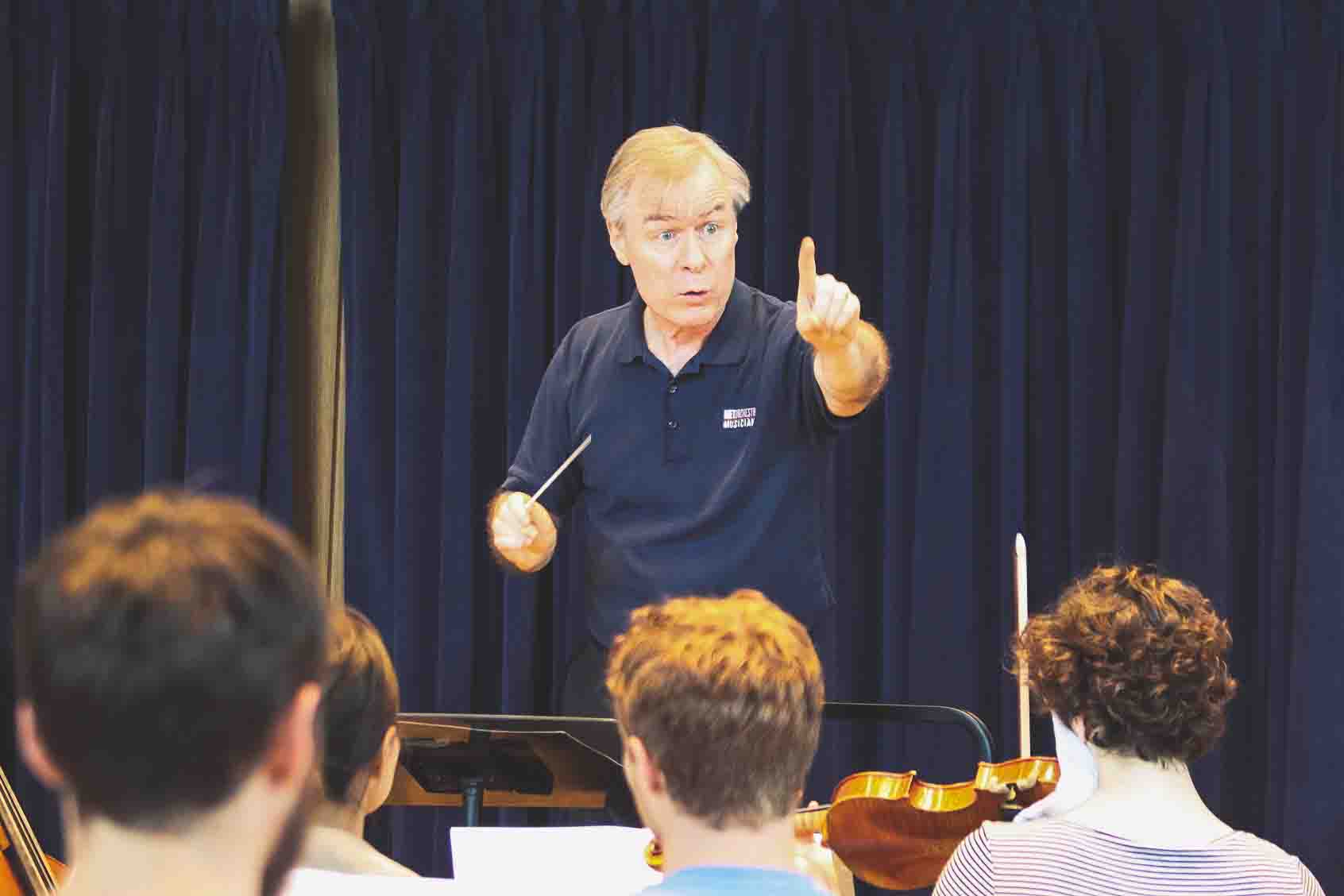
YaleSchoolofMusic
In 2011, violinist Laura Park MUS ’18 won a competition that brought her to the stage of Severance Hall in Cleveland to perform the Sibelius Violin Concerto with the Cleveland Orchestra. For Park, this opportunity was not just another concert — it was the moment she discovered a love of performing.
On Friday night in Woolsey Hall, Park will appear as a soloist alongside another orchestra: the Yale School of Music’s Philharmonia, the music school’s largest ensemble, led by guest conductor David Robertson. After winning the 2017 Woolsey Hall competition in April, Park got the opportunity to work with the Philharmonia this season, performing music by the 20th-century English composer William Walton.
“It’s different from the typical violin concerto,” Park said, adding that Walton creates a very different “sound world” than, for example, the more well-known violin concerto of Tchaikovsky. “It’s very virtuosic, but never for the purpose of being so.”
Park also said Walton’s music produces a “much more inner kind of expression — a sensitive expression.” She noted moments when musical textures and colors are exchanged between the soloist and the orchestra in the concerto. According to Park, the mark of a good orchestra is the ability to support the soloist’s sound without covering it.
Park studies with School of Music violin professor Ani Kavafian, who has recently worked with Park on ensuring that the soloist fills Woolsey Hall with sound during her performance with the orchestra. Park said two important ideas she and Kavafian have focused on were “beauty of sound” and “being able to have different modes of expression.”
The Walton Violin Concerto will be second on Friday’s program, preceded by contemporary American composer Christopher Rouse’s 2000 work, “Rapture.” Ariel Horowitz MUS ’19, the Philharmonia’s concertmaster for this performance, described the piece as “spectral,” with “sound swirling around the whole group.”
Horowitz added that Robertson’s work on Rouse’s piece with the Philharmonia has focused on “trying to bring out the different gradations in the color of the music.”
The concert will conclude with 19th and 20th century German composer Richard Strauss’ tone poem “Ein Heldenleben,” or “A Hero’s Life.” Horowitz described the piece as an autobiographical work for Strauss, with a theme representing the composer that transforms in the piece through moments of artistic doubt and consolation.
David Yi, the assistant conductor of the Philharmonia, said that many young conductors have little experience with “Ein Heldenleben,” and that leading the preparatory rehearsals has helped him learn the musical work in greater depth.
According to Horowitz, Robertson has an “interesting and innovative interpretation of the piece.” Another member of the Philharmonia, violinist Elliot Lee MUS ’18 also supported Robertson’s interpretation of Strauss’ tone poem. Under Robertson’s direction, Lee said, the orchestra is not so much trying to play music as to use music to tell a story.
The story involves a theme representing the character of Strauss’ wife, Pauline de Ahna, who is brought to life in the music with a lengthy concertmaster solo that Horowitz will play. Whether or not the composer intended it, Horowitz said Strauss’ representation of Pauline might be one of the first pre-feminist representations of women in classical music, because Pauline is “not just an angel and not just a demon.”
Horowitz also cited a moment in the violin solo in which the written direction that accompanies the music denotes a “soft and seductive moment,” followed shortly thereafter by an instruction to embody a completely different character.
A manuscript of Walton’s Violin Concerto is in the Frederick R. Koch Collection of the Beinecke Rare Book and Manuscript Library.
Julia Carabatsos | julia.carabatsos@yale.edu







